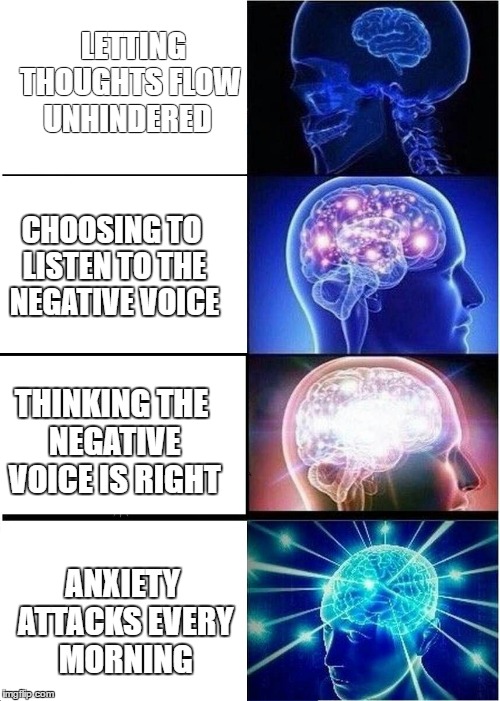As 2017 draws to a close, we all get ready to regale our friends and family with grand tales of our quest in self-improvement for the next year. Whether it be something as simple as reading more, or something more urgent like quitting smoking, resolutions are definitely an ingrained New Year tradition, and this year is no different. However, I am approaching the concept of resolutions a little differently this time around.
Instead of surface changes that’ll undoubtedly make me smell better, have more interesting conversational topics or whiter teeth, I’m focusing inward. I hesitate to call them resolutions – perhaps promises might be a better word? I don’t know. It’s possible that they don’t even need to be labelled, so I won’t. Either way, I’ve narrowed my list down to 5 items (I’ll go with items, I think) that will, if I’m committed enough, make the rest of my life a much happier one.
And so to the list.
Item 1 – Foster compassion
I aim to be compassionate to people, regardless of my connection to them or their status. If there’s anything I’ve learned this year, it’s that we’re all basically stumbling around in the dark with a flashlight that tends to work pretty sporadically. Because of this, I feel like I have a responsibility to the people around me to allow them their mistakes, their downfalls and their vices. I aim to allow people to live their experience – allow them their opinions, their dislikes, their likes. On the other side of this, I aim to foster compassion for myself. Allow myself to make mistakes and grow from them, instead of expecting myself to know how to do things the first time. My experience and perception is my own, just as every individual being, human or animal, has their own unique experience and perception, and because of this, I have no right to pass judgement or be angry/upset at someone else. I have no idea of the circumstances of another person’s life, so I have no ground to stand on when I’m passing judgment on them. Even if I am slighted or hurt, I aim to do my best to forgive and move on. There is no point in grabbing tightly to pain. Peace is easier to live with, really.
Item 2 – Foster kindness
This isn’t so much about carrying an old lady’s bag or telling someone their new hairstyle looks nice (without hesitating, even) but on a level where it might not even be noticed. In a way, it’s a selfish act, because by fostering this type of kindness I’m ultimately making my own life easier. I’m talking about the type of kindness where I allow taxis and other cars to cut in front of me, allow an angry person to feel like they’re right, that kind of thing. It’s kindness in that it thanklessly helps make somebody’s day easier – the taxi and other drivers get to where they need to be as fast as they feel they need to. Angry people feel vindicated and fulfilled, like they’ve won. It also extends to the self – I want to be kind to myself, and put healthy things into my body so that it functions at its best. This body is the only real way I have of navigating this world – it’s like an organic car, I guess. I need to look after it, otherwise later on, when I’m old, I will be unable to live the life I want to live. That begins now.
Item 3 – Foster forgiveness
This one is hard. It’s not only forgiveness in the sense that if someone does me harm, I will forgive them. It’s about looking through the action and seeing what inspired it, and forgiving that. Again, this one is more selfish – I am aiming to forgive people for my own peace and happiness. It’s about letting go of the hurt that I experience and forgiving the person their own human flaws that led to their decision. There’s no point in holding on to that kind of anger – it makes you bitter. Forgive, be kind and compassionate; they all tie in to each other and depend on each other to work.
Item 4 – Foster awareness
For too long, I have been talking about how I feel really disconnected from the earth and the things on it. There’s a base understanding deep inside me that I come from the earth and so I must be connected to it, as it exists within me, but I spend too much time focused on things that don’t contribute to an awareness of that connection, which is something I think should be stronger (the connection, I mean). I plan on spending time just being aware of what’s going on around me. Listening to the wind and following its path, watching birds. Not for any kind of spiritual awakening, but just because it’s there, and it deserves to be witnessed. Besides, I want to witness it – it’s nature in its rawest, natural form, and I want to feel like a being who lives with the earth, not just on it.
Item 5 – Foster peace
Peace with myself, and with my life. Peace with the knowledge that I am enough, and good enough, and funny enough, and talented enough, and worth enough. Peace with the way my life goes, be it good or bad, and taking peace in the knowledge that I have the foresight and will to ensure that whatever happens, I will survive. Peace with my surroundings, and peace with loneliness. Not forcing anything, or expecting anything, or giving into desires. Just peace. The first four items on this list lend themselves quite well to inner peace, I think, so hopefully it won’t be too hard. Even if it is, that’s okay too. It’ll just be even more worth it when I look back and realise exactly how much I have achieved and grown.
There is too much dissatisfaction, and too much need for more. I worry that we will never reach a collective point where we can all look at what we have, and say with conviction “I have acquired and achieved enough.” 2018 is the beginning of a journey into my own mind and body, where I will let things be as they need to be. Allow the natural path of things to be taken and followed. Relinquish control over the things I cannot control – holding onto that has only proven to end in anxiety and suffering. I’m not about that life anymore.
I’m about MY life. I want to live happily and well. And I want to begin now.

